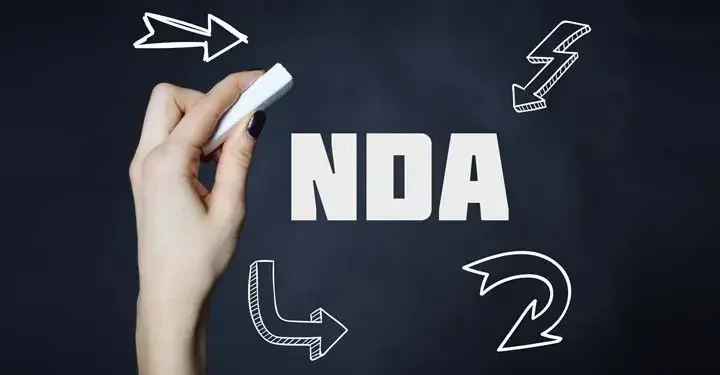Starting a business is exciting, but there are a lot of steps to take to get from brilliant idea to successful company. The most important building block of your new venture is your business plan, which you'll be sharing with a lot of people. Because of this, you'll want to use a nondisclosure agreement (NDA) to ensure your hard work and planning remains confidential.

Creating a basic business plan
Creating a strategic business plan not only allows you to think through every aspect of your business, it provides a tool you can use to get investors, funding, new customers, and partners.
A well-developed business plan helps you recognize and deal with many possible impediments to your success in advance. It also helps you sharpen your strategy so that you can hit the ground running. A good business plan takes weeks or months to create and requires a lot of research and planning. A basic business plan should include:
- Market analysis and strategy. This section looks at market trends, the segment of the market you will target, and the strategies you'll use.
- Competitors. List the companies you see as your direct competitors and how you will differentiate yourself from them.
- Staffing and employees. You might list specific people who will join your team or identify key roles and skills you need in employees.
- Financial data. Include sales predictions, capital, debts, and more—basically all the financial details of your company.
You can create a business plan using a template or work with a legal service provider or an attorney to create one. Be sure the document is thorough and complies with your state's laws.
Understanding nondisclosure agreements
A nondisclosure agreement states that your business will give an individual or another business information that they agree to keep secret. If the agreement is breached, you can seek compensation. Using an NDA signals that the information you're sharing is private and critically important to your business.
An NDA is usually one-sided, meaning you're providing confidential information to the other person only. However, it could be two-sided, or mutual, if both parties are sharing confidential information with each other, such as if you're in talks with a potential partner.
What to include in a nondisclosure agreement
Before sharing your business plan with potential investors, customers, partners, or banks, you should first have them sign an NDA, which should include the following information:
- Definition. Describe clearly what you are characterizing as confidential so that there can be no misunderstanding. Generally, you want to state that your entire business plan is confidential, as well as any supporting material you provide and any discussions you have about the business plan.
- Jurisdiction. The agreement should indicate which state's laws apply to the agreement.
- End of relationship. If you and the other party receiving the business plan decide not to work with each other and terminate your business relationship, the information you provided should be returned to you, destroyed, or deleted.
- Length of agreement. An expiration date is normally included, as NDAs cannot be open-ended.
- Ownership of the information. The NDA should make it clear that just because you're sharing information, you're not giving the receiving party any ownership rights in the information.
- Other people. The party you're sharing the business plan with may need to show it to people who work for or with them, such as their accountant or lawyer. The agreement should state that the NDA is binding on those third parties as well.
- Signatures. The agreement should be signed by you and someone from the receiving party who has legal authority to enter into the agreement. The NDA should make it clear that this person has the authority to do so and that their signature is binding on their company.
Refusal to sign a nondisclosure agreement
You may find that large banks or investors won't sign your NDA. This can be frustrating, but because such large funders review hundreds of business plans or pitches every month, they may see doing so as an undue burden.
To protect yourself, you could bring a digital copy of your business plan to your meeting and not allow them direct access.
Another idea is to put the business plan online behind a password, making sure to change the password often. You could also withhold as much confidential information as possible until the investor is seriously interested.
An NDA offers an important way to protect yourself as you share your business plan and seek investors or partners. Taking this extra step can ensure your ideas and data are not stolen or shared without your permission.

